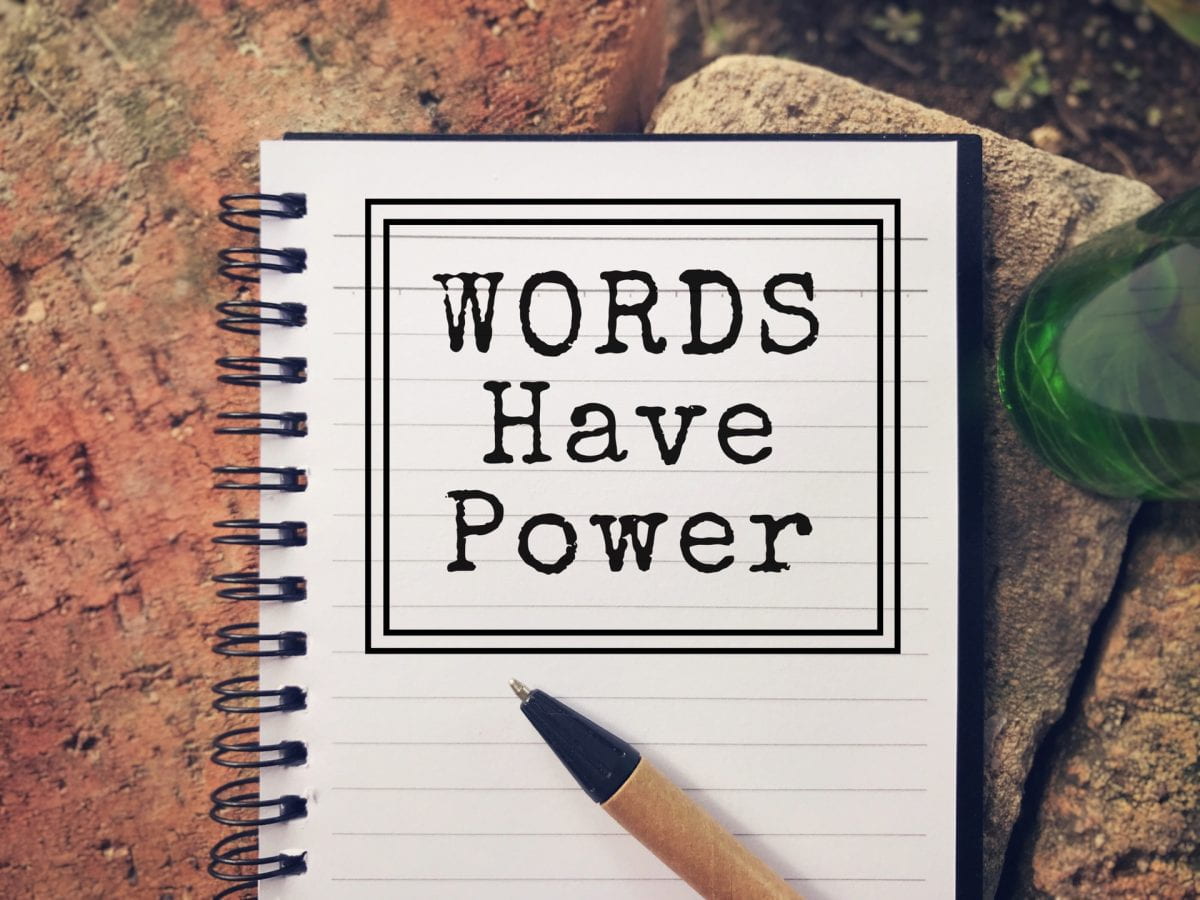
Many people want hard and fast rules about what disability-related language to use. Others often dismiss the topic of language and word choice as being about “political correctness.” Research, though, is making it more clear that our language shapes our thoughts. The words we choose also have an impact on those around us.
The American Heritage Book of English Usage, published in 1996 states:
“One of the most basic ways of showing respect for others is to refer to them by the names with which they have chosen to identify themselves and to avoid using names that they consider offensive.”
Thinking About Language
Rather than setting rules about what is okay and is not okay to say, we suggest putting more thought into what messages certain phrases send and what images they create in our minds. It is important to recognize that language is constantly evolving and not everyone within the disability community agrees on or prefers the same use of language.
It is ideal to avoid language that:
- paints a negative picture of disability
- patronizes people with disabilities
- perpetuates misconceptions
Instead, choose language that is consistent with the idea that lack of access and societal attitudes are the problem—not disability.
Quick Take
- Words can affect how people think.
- It is important to think about how we talk about disability.
- The word disability is not a bad word.
- Some people prefer disabled person. Some prefer person with a disability.
- Some words and phrases are not respectful.It is good to ask people what they like to be called.
Euphemisms
People often avoid the word disability because they think it is a bad word. They may use phrases that make them feel more comfortable, like “special needs,” “differently abled” or “abilities” as a substitute for disabilities.
The definition of euphemism from the Oxford dictionary is:
“A mild or indirect word or expression substituted for one considered to be too harsh or blunt when referring to something unpleasant or embarrassing.”
So what message does using a euphemism for disability send? It communicates that disability is a word to be avoided and paints a negative picture of disability. Some people also find the use of euphemisms patronizing.
People First or Identity First Language
There are some people who are strong advocates of what is called people first language. This approach would suggest the use of the phrases person with a disability or people with disabilities. Those who promote this language see it as more respectful because it emphasizes the person rather than the disability.
Others prefer identity first language, thus using the phrase Disabled people. Their perspective is that disability is a natural part of human diversity and there is no reason to shy away from that identity. They would argue that we don’t see a problem with saying Black woman or Gay man so the phrase Disabled people should be equally acceptable.
Supporters of both identity first and people first language would generally agree that in most cases it makes sense to use “people first” when talking about specific conditions. So, for example, one would say a person with cerebral palsy or a person with Down Syndrome. There are some exceptions to this as well. Identity first language is preferred by many people who are Deaf, Blind, DeafBlind, and Autistic.
Of course, most people prefer to be called by their names. If you need to use language related to disability, ask what the person prefers.
Phrases to Avoid
Though we encourage a thoughtful approach to language use rather than simply memorizing a list of right and wrong words or phrases, there are certain phrases that are widely agreed upon as problematic. The National Center on Disability and Journalism has a good listing. We list some examples, but encourage you to check the link above for more information.
- abnormal
- afflicted with, suffers from, or a victim of
- able-bodied
- confined to a wheelchair, wheelchair bound
- deaf and dumb, deaf-mute
- mentally retarded or retarded
- has the mind of an x-year old (or her mental age is…)
- high-functioning and low-functioning
- vulnerable population
- special needs
Summary
The best way to learn to use respectful language is to engage with disability activists and listen to their perspectives. Nick Marcellino, the brother of Rosa Marcellino for whom Rosa’s Law was named, is quoted as saying “What you call someone is how you treat them.” Taking time to learn and think about the language we use shows respect.
Suggested Resources
- ‘Disabled’: Just #SayTheWord: This NPR article summarizes an interview with Lawrence Carter Long by Barbara J. King discussing the reason behind the hashtag #SayTheWord.
- Guidelines for Writing about People with Disabilities: This factsheet from the ADA National Network provides guidelines for portraying individuals with disabilities in a respectful and balanced way by using language that is accurate, neutral and objective.
- National Center on Disability and Journalism – Disability Language Style Guide: The style guide is intended for journalists, communication professionals and members of the general public who are seeking the appropriate and accurate language to use when writing or talking about people living with disabilities.
- Producing Positive Disability Stories: This guide by Haben Girma provides guidance for media and journalists but is helpful to others as well.
- Syracuse University Disability Cultural Center Language Guide: The purpose of this language guide is to provide you with some information on the different types of language that are used frequently when communicating about disability.